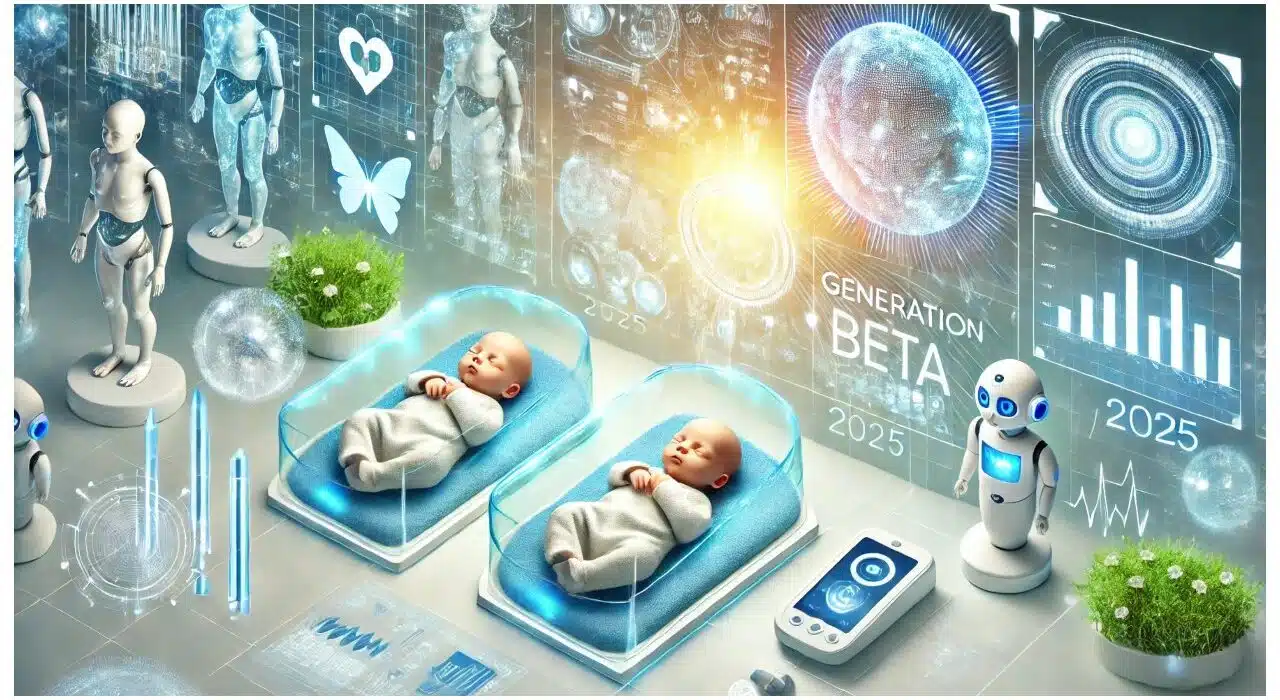From January 1, 2025, the world will usher in a new generational cohort: Generation Beta. This generation includes children born between 2025 and 2039. They are expected to form 16% of the global population by 2035. Many of them could see the 22nd century, according to social researcher Mark McCrindle, who coined the term.
After Generation Alpha (2010-2024), comes the generation known as Beta. This is the continued usage of the Greek alphabet, which represents a new beginning in the history of mankind. They follow on the heels of the Millennials (1981-1996) and Gen Z (1996-2010). Technology defines the Beta generation
Gen Beta will come of age in a world where technology is not added but is actually integrated into daily life. Autonomous cars, wearable health technology, and immersive virtual reality could all become commonplace realities. For Gen Alpha, artificial intelligence and automation are growing things to which one has had to adapt and adjust. But Gen Beta will take these technologies as a natural part of education, working life, health care, and entertainment.
“Gen Beta will redefine human interaction with technology,” according to McCrindle on a blog, “becoming seamless and intuitive, the new norm for experience design with technology.”
What 2025 And Ahead Holds for Generation Beta
But with the advantages come the disadvantages. Climate change, rapid urbanization, and shifting demographics around the globe will be critical challenges to Gen Beta. Different from their predecessors, who led the way to ecological thinking, Gen Beta will be expected to turn sustainability into the heartbeat of society rather than just a hot topic of conversation.
Moreover, as social media becomes the most dominant form of human interaction, making meaningful connections might become a hard fight. Gen Beta will have to deal with a world where digital tools can both connect and isolate.
A Generation of Adaptability
This generation may be defined through adaptability. In today’s fast-changing world, the ability to pivot will determine the future of humanity in society. Businesses and policymakers will need to listen to their needs and preferences, but so will educators.
Gen Beta is a turning point in human history. Norms will be rewritten, emphasis on sustainability will be redrafted, and technological evolution and societal changes will necessitate adaptation.
Also, see: World Test Championship 2023-25: India’s Qualification Scenario for WTC Final
